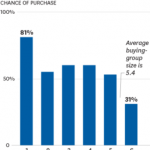The Non-Paradox Of Highly Successful Profit-From-Purpose Businesses
Despite the recent success of companies like Tesla, Etsy, 7th Generation, and Crowdrise, I still hear from VCs that they’re not interested in funding purpose-driven companies. After networking with Silicon Valley VCs for a decade during the Web 2.0 years when I ran a large social networking site, I felt a lot of push-back when I told them I intended to work exclusively on for-large-profit businesses that also generated a direct social benefit. The response was mostly that they’re novelties or not good VC bets.
But study them closely and you’ll find a very different story. Successful profit from purpose companies are almost always strategic deployments based on first principles, concluding that enough customers reliably prefer quality product at a fair price if it also reflects their personal values. Yet the traditional response by venture capitalists–and one I still often hear today–is they don’t want their profit de-maximized by a second bottom line. Conversely, impact entrepreneurs are often concerned that their impact will be de-maximized by servicing financial returns first. But the best for-large-profit-from-purposes find that the purpose is what generates the sustaining financial returns, and it is that profit which throws off lasting impact. For these businesses, the profit and purpose are interlocked and the way to maximize profits is consistently providing the purpose.

Why don’t you want to build highly profitable business that can provide impact more reliably than your future donations? [Illustration: Jolygon/iStock]When I speak with traditional-minded VCs or impact founders here’s what I hear, followed by my counterpoint.
Traditional-minded VCs:
“I don’t like it when the greed part of my brain gets mixed up with the do-good part?”
I’m sorry you don’t understand that purpose is marketing spend for the new generation.
“Why don’t you just earn your wealth first, and then donate it afterward?”
Why don’t you want to build highly profitable business that can provide impact more reliably than your future donations?
“We don’t invest in charities?”
Charities don’t provide financial returns. I’m talking about for-large-profit businesses.
“Building a successful business is hard enough, why do you want to make it harder?”
Very few businesses are easy. Most require executing on a high level-of-difficulty. Why not make purpose the competitive advantage instead of fighting it out in a battle royale?

If your grown baby can’t protect itself from market forces, you didn’t raise it right. [Illustration: Jolygon/iStock]Impact founders have similar thoughts about VC money:
“I won’t IPO and put my company at the mercy of public markets.”
But you will accept the risk of having to raise money at hard times if there are a bad couple years?
“I will never sell. It would be like selling my baby.”
If your grown baby can’t protect itself from market forces, you didn’t raise it right.
For-large-profit-from-purpose businesses are not a paradox
Their purpose is what drives profit and the ability to outcompete in their market. And their profit is what allows them to outlast foundations and government programs trying to provide the same purpose. Furthermore interlocked profit-from-purpose businesses can take significant market share in even crowded sectors.
They can unlock large markets that existing mercenary businesses didn’t even see in front of them. Then, once established, profit-from-purposes intrinsically create highly defensible moats around themselves. Competitors can’t simply knock them off by matching product, price, and convenience, they have to also match brand message, good governance, customer experience and satisfaction, supply chain excellence, and company values. It’s also important to understand income isn’t lost on purpose spend: it’s usually a wash thanks to reduced marketing budgets and higher employee and customer retention.

Profit-from-purposes can also intrinsically last longer than the average S&P 500 company
These businesses employ non-extractive models and their constant commitment to their customers’ values naturally evolves them in lockstep with their revenue base. Most companies that find a good product milk it for as long as they can with endless marketing spend. A profit-from-purpose must constantly improve their offering to stay meaningful to their customers, forcing them to innovate to stay with the times.
In the old day, Ben & Jerry’s never wanted to sell because they never trusted the acquirer would uphold their ethics. In the end, they went with a high-ethics buyer, but what they didn’t realize was that customers prefer Ben & Jerry’s because of the purpose as much as they do the flavor. If the purpose went away after an acquisition, so would the customers. Now even mercenary investors and acquirers know they have to maintain the company’s purpose to keep driving profit growth. Bain & Co. bought 50% of TOMS Shoes and Campbell bought Plum Organics, yet a customer would never know there was any leadership change.
The electric example everyone knows?
Tesla began with the mission of “sustainable transport” and sold expensive, 2-seater electric roadsters. Certain rich people loved gas-free sport driving and the cars became a niche hit. Tesla sunk the proceeds into the Model S and Model X four-doors, expanding the satisfying experience to affluent families while also providing reinvented interiors, exteriors, driver interfaces, safety options, and free recharging stations. These models were also popular but with a wider audience. Those proceeds were plowed into making the Model 3 which will bring the Tesla experience closer to the fat $30,000 segment of the market. Lower margins, but much bigger market. Undoubtedly, Tesla will use the sales proceeds to eventually release an economy model.
If you want to knock off Telsa you have to challenge them as a superior renewable energy generation, storage, and transportation company. [Illustration: Jolygon/iStock]
Returning to earliest days of Tesla Roadster development, the company believed electric car batteries were too environmentally wasteful and expensive. Their “sustainable” mission challenged them to make better batteries simply as part of making a better electric car. Yet it was only that obsession that unlocked the company’s ability to make an entirely separate business line producing large-scale, cost-effective, environmentally efficient batteries for residential, corporate and utility customers alike.
During this same time period, sister company Solar City was reinventing a pricing model to bring home solar to most any owner. That obsession led to the ability to industrial-scale deployments as well as solar cell disguised in aesthetically pleasing roof tiles. As combined companies now, Tesla’s revised mission is “sustainable energy,” and if you want to knock off Telsa you have to challenge them as a superior renewable energy generation, storage, and transportation company. That’s an impressively defensible moat for a 14-year-old business.
Meanwhile, every other American car company is still just a car company competing on annual incremental improvements reliant on massive market spending. But to be clear, this is not to imply that neutral and mercenary companies won’t continue to generate massive financial successes. Their models are well proven and underpin much of capitalism today. I simply want to highlight that the early, seemingly anomalous success of profit-from-purpose businesses are not anomalies, they are the tip of the spear. Younger consumers seek brands that reflect their values. The world’s best accelerators are actively recruiting companies with profound missions. Elon Musk–who has been a part of three major profit-from-purpose businesses–is the most admired leader in tech. Large-profit-from-purpose businesses aren’t here to stay, they’re here to win.
Ted Rheingold helps build for-large-profit-from-purpose financial service companies. He’s currently a Sr. Advisor with Bloom Credit and was previously COO of Tala. You can follow him on Twitter @tedr.
VCs still have questions about impact businesses, but the businesses are showing more and more that they have answers.
Despite the recent success of companies like Telsa, Etsy, 7th Generation, and Crowdrise, I still hear from VCs that they’re not interested in funding purpose-driven companies. After networking with Silicon Valley VCs for a decade during the Web 2.0 years when I ran a large social networking site, I felt a lot of push-back when I told them I intended to work exclusively on for-large-profit businesses that also generated a direct social benefit. The response was mostly that they’re novelties or not good VC bets.
Fast Company , Read Full Story
(43)














